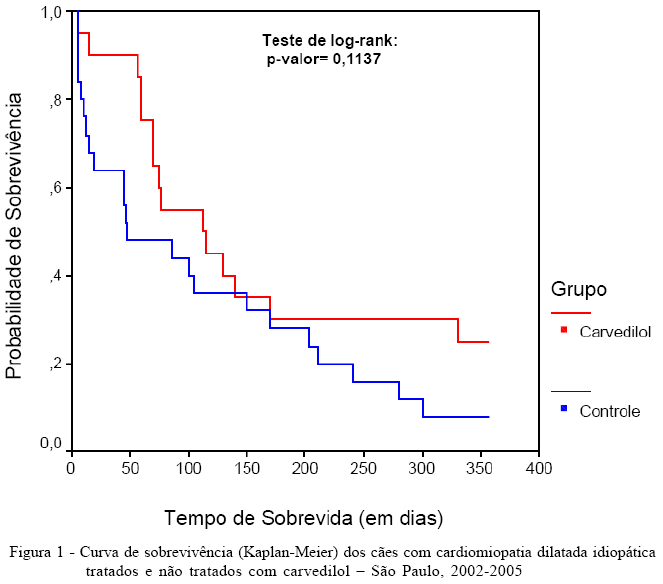Commonly prescribed therapy for dogs presenting DCM consists of vasodilators, positive inotropic drugs (digitalics), diuretics, low-sodium diet and, when necessary, anti-arrhythmics. Carvedilol is a third generation non-selective β-blocker which blocks equally and competitively (β1, β2 and α1) receptors. Produces an evident peripheral vasodilation, exerts anti-oxidative effects, removing free radicals of oxygen and preventing lipidic peroxydation of cardiac membranes, and the loss of myocytes and arrhythmias, as well as reducing mortality rate in human patients. The aim of the present study was to evaluate by physical examination, electrocardiography, radiography, and echocardiography the evolution of dogs with dilated cardiomyopathy (DCM) treated by conventional therapy associated to carvedilol. Forty-nine dogs with DCM were divided in two groups: group NT: treated with conventional therapy, and group T: treated with conventional therapy associated to carvedilol. The animals were submitted to clinical and complementary examinations during one year. The results demonstrated that carvedilol therapy presented good tolerability on the dose of 0.3mg kg-1 each 12 hours, prolonged lifetime of the dogs in 30.9%, did not alter systolic or diastolic pressure, reduced heart frequency after three weeks of treatment, significantly enhanced shortening and ejection fractions after six months of treatment, did not promote radiographic or E-septum distance alterations, decreased patients letality, as demonstrated by improvement of clinical score and functional class (heart failure according to NYHA) of the animals, obtained three weeks after the beginning of cavedilol therapy.
dogs; clinical evaluation; beta-blocker; dilated cardiomyopathy

